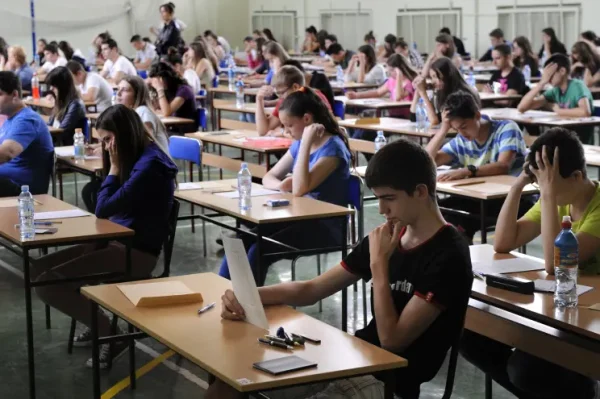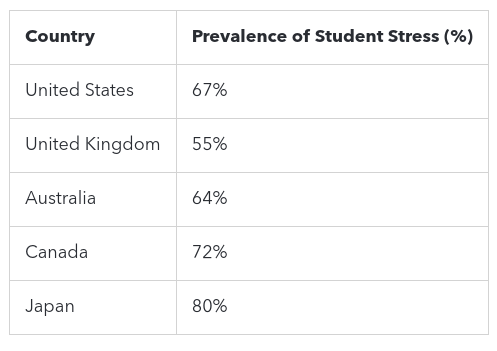Junior year: the one year in high school deemed to be the most difficult regardless of who you are, most people are warned when entering high school. The ACT and/or SAT, beginning to research and visit colleges, and so much more inundate eleventh grade. Unfortunately, when pressured into this belief that junior year is so complicated, you’ll be fully convinced that that is exactly what it will be. However, in this article, I’ll be proving otherwise based on my very own experience.
Expectations

Junior high teachers tend to prepare us for high school, usually making it seem like a very strict next four school years of our lives. When prepping for this time, 11th grade is often mentioned by upperclassmen along with teachers, as you’ll most likely be expected to start looking into college and career options. This inevitably already puts a big cloud of stress on students, especially when they’re already trying to adjust into moving on to a bigger and more complicated school/schedule. According to a study by NYU, it’s been proven that about half of high school students (45%) feel stressed on a daily basis (NYU, 2015). Not only are students expected to start searching for career paths, they will sooner or later discover the fact that they’ll be taking their SAT’s. The SAT itself is a standardized test which is used for college admissions in the U.S. Students will take the PSAT (practice SAT) in their freshman and sophomore years of high school, which are used to prepare for the SAT. Even when given the proper materials to study and practice, it isn’t the same as being held to the expectation of receiving a high score on the real test. Regardless of tests and college, the workload during Junior year of high school is definitely something that you’ll find out about sooner or later. When approaching this year, it is more than likely that you’ll hear from fellow students or teachers that you will have a completely new workload when it comes to homework and in-class work. Although, this does entirely depend on teachers, classes, and the amount of work you’ve received in your previous years, meaning this can be based on opinion.
My Experience
When going into my junior year of high school, I was aware of all of these expectations myself which completely terrified me. With this in mind, I personally chose to drop down from a few AP and Honors classes to make it a little bit easier on myself. This, and being presented with a new strict no phone rule in our school, ended up making my Junior year a whole different experience than expected. By not having my phone in classes, I can genuinely say that I was able to regain focus during this school year and pay more attention in my classes. An example of this would be my math class. Sophomore year I decided to take Core Plus 3, which I ended with a C, whereas this year, I decided to go with Precalc and I currently have an A in the class. At some point in the school year, I decided to take a look at college options and career paths on my own time, which allowed a lot less stress and pressure when trying to find the right choice for me. When approaching the time to take our SAT’s I was more focused on the fact that I believed in myself and that I could do well, versus scaring myself that I “couldn’t” succeed. This is extremely important to remember because your mindset may just be the reason you don’t reach your full potential. Lastly, the workload for me was not so much different from the past two years of high school. Throughout this year, I tried to balance my schedule along with school work and that is exactly what allowed me to succeed. Though, this definitely depends on what type of person you are, as it is different for everybody.
Prevalence Of Student Stress By Country

Advice
For any students approaching high school, or specifically incoming juniors, I’ve developed a short list of things that you should keep in mind or consider.
- When choosing your schedule for 11th grade, it’s important to choose classes you trust in yourself you’ll do well or even excel in.
- Don’t put yourself down if you’re still unaware of which college and career path to choose; there are plenty of classes and people to speak to when preparing for this. (Do remember that you still have TIME).
- The SAT is a very important test but do understand that you will have the time and materials to prepare for it.
- Don’t let other people’s experiences cloud your judgment. Life’s journey is different for everyone.
- Make sure to balance your schedule to work for you, and try to avoid leaving assignments for the last minute. (Those late assignments add up!)
- Lastly, make sure to keep a work (in this case school) life balance; don’t let school completely consume you.
Overall, high school is a completely different experience for everybody. Please remember that this article is based on MY own personal experience, which may or may not be the same for others. Regardless, keep your head high and don’t let expectations get to you. Good luck!






